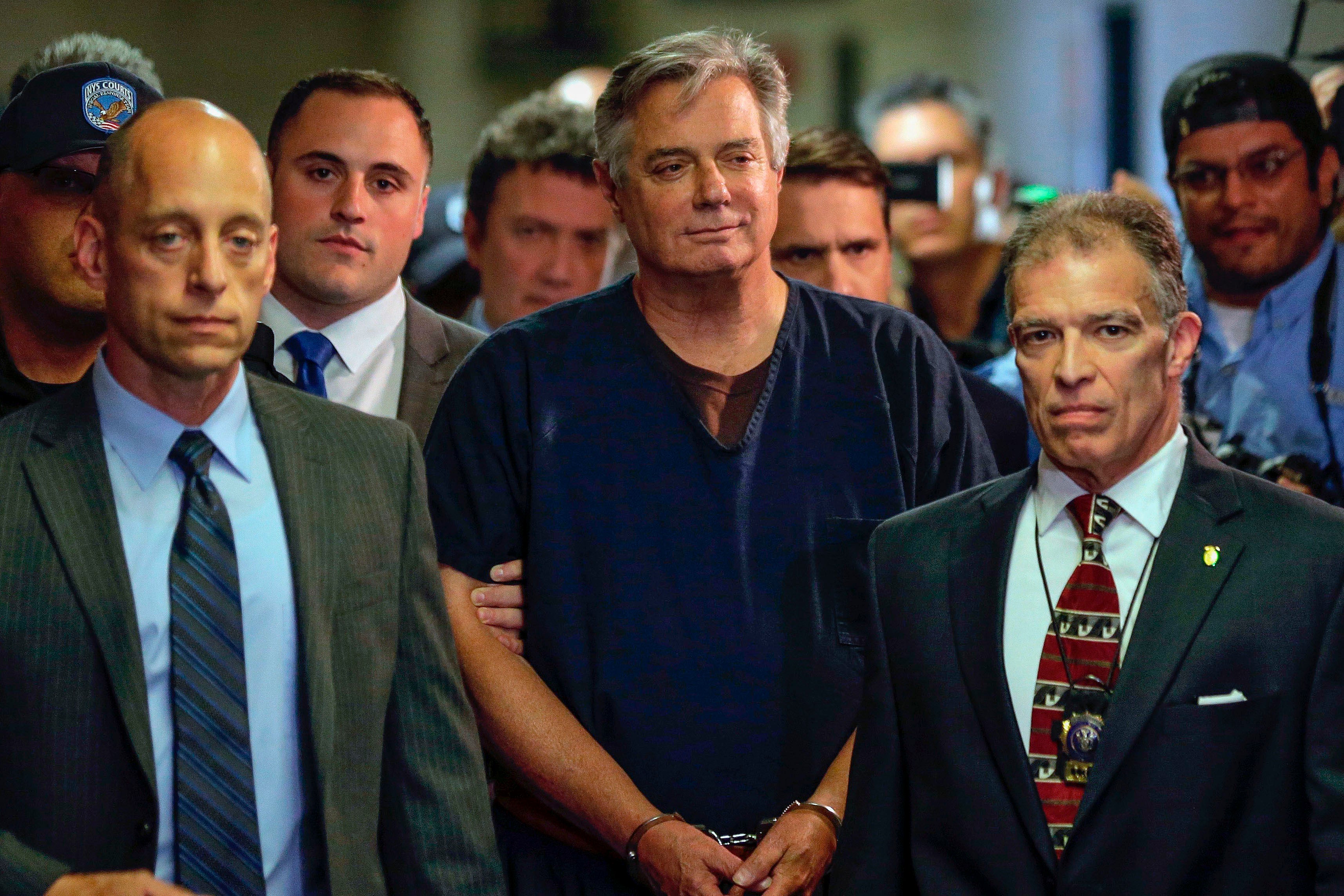New York's high court ends state case against Paul Manafort
Paul Manafort won’t face mortgage fraud charges in New York after the state’s highest court declined to revisit lower court decisions that barred prosecuting Donald Trump’s former campaign chairman on double jeopardy grounds

Your support helps us to tell the story
From reproductive rights to climate change to Big Tech, The Independent is on the ground when the story is developing. Whether it's investigating the financials of Elon Musk's pro-Trump PAC or producing our latest documentary, 'The A Word', which shines a light on the American women fighting for reproductive rights, we know how important it is to parse out the facts from the messaging.
At such a critical moment in US history, we need reporters on the ground. Your donation allows us to keep sending journalists to speak to both sides of the story.
The Independent is trusted by Americans across the entire political spectrum. And unlike many other quality news outlets, we choose not to lock Americans out of our reporting and analysis with paywalls. We believe quality journalism should be available to everyone, paid for by those who can afford it.
Your support makes all the difference.Paul Manafort won't face mortgage fraud charges in New York after the state's highest court declined to revisit lower court decisions that found the case brought against Donald Trump’s former campaign chairman in the wake of a similar federal prosecution amounted to double jeopardy.
The decision last week from the New York Court of Appeals, a last blow to Manhattan District Attorney Cyrus Vance Jr.'s effort to put Manafort behind bars, closed the door on charges in the matter. It came less than two months after President Donald Trump pardoned the 71-year-old Manafort in a federal case that covered similar ground and put him behind bars.
Manafort's lawyer, Todd Blanche, said he was pleased with the Feb. 4 decision.
“This is a case that should never have been brought because the dismissed indictment is a clear violation of New York law,” Blanche said, echoing the stance he's held since Vance brought the state charges in March 2019.
Vance's decision to charge Manafort was widely seen as an end run around the possibility Trump would pardon him for federal crimes. Trump's pardon does not cover state offenses.
Vance's office declined to comment on the Court of Appeals ruling ending its case.
Manafort was convicted in federal court of tax and bank fraud charges involving allegations he misled the U.S. government about lucrative foreign lobbying work, hid millions of dollars from tax authorities and encouraged witnesses to lie on his behalf.
Less than a year into his nearly 7½-year sentence, he was released to home confinement in May because of concerns about the coronavirus. Trump pardoned him just before Christmas.
Vance, a Democrat, filed the state charges minutes after Manafort's sentencing in the federal case. The Manhattan case alleged Manafort gave false and misleading information in applying for residential mortgage loans from 2015 to 2017; he was also charged with falsifying business records and conspiracy.
The Manhattan case was widely seen as an attempt to hedge against the possibility Trump would pardon Manafort for federal crimes.
Manafort’s lawyer quickly raised the double jeopardy claim, saying the New York case was essentially a copy of the federal one.
Vance's office contended its case was exempt from state double jeopardy protections because the charges involved different aspects of some of the offenses covered in the federal case.
A trial court judge, and then an intermediate appeals court, disagreed.
Vance's office appealed to the state's highest court, the Court of Appeals, in November.
The state's chief judge, Janet DiFiore took on the matter herself and issued a one-page decision denying Vance's office an opportunity to pursue its appeal further, effectively ending the case.
The New York Times was first to report the news of DiFiore's decision.